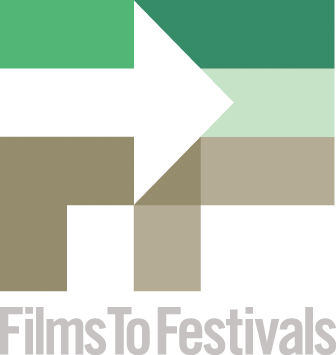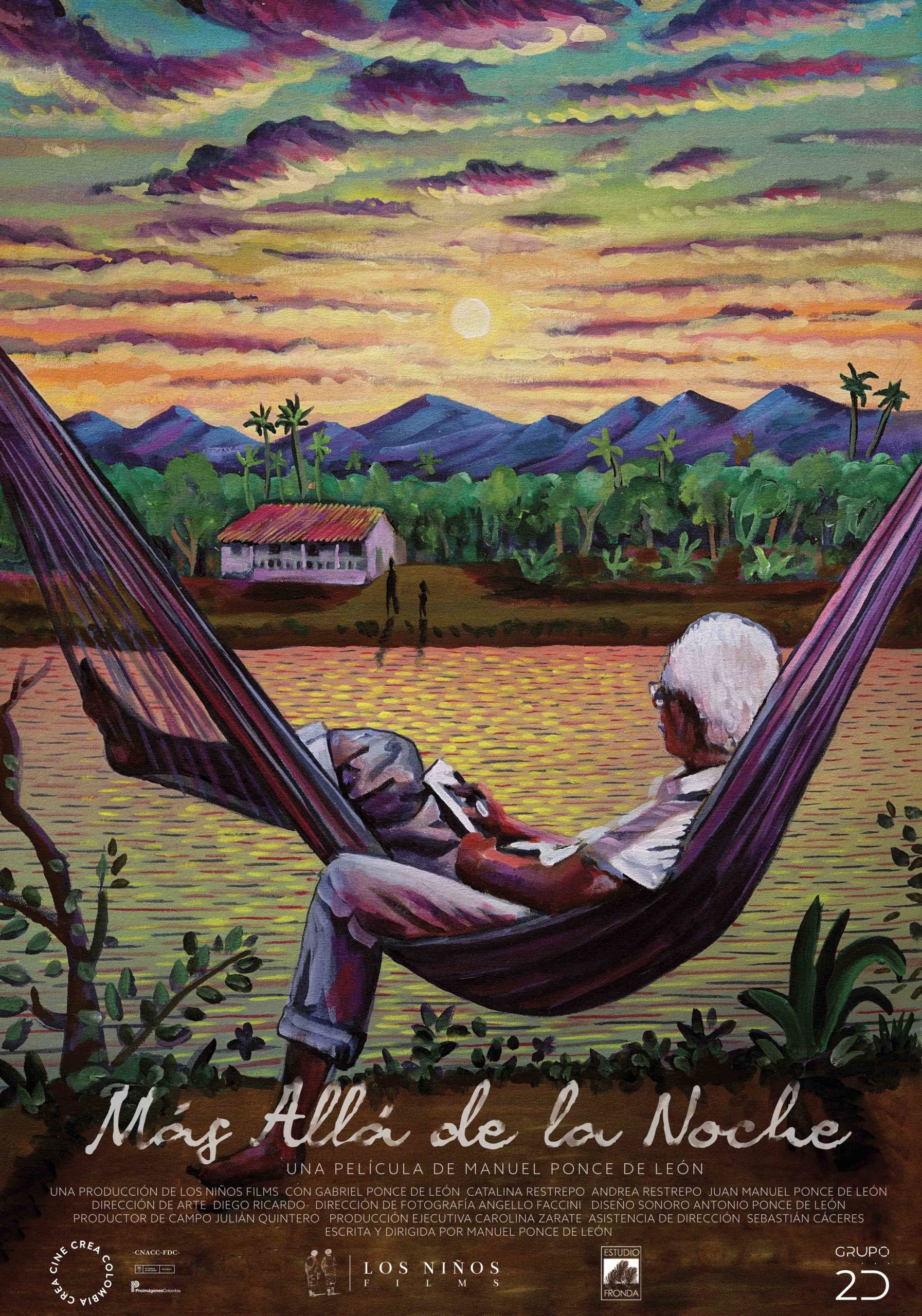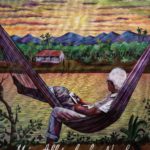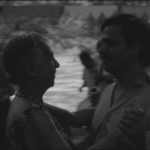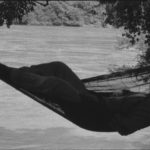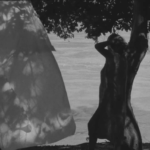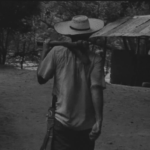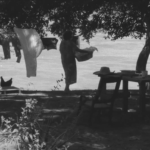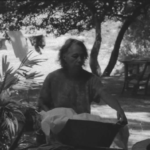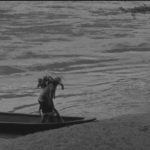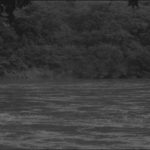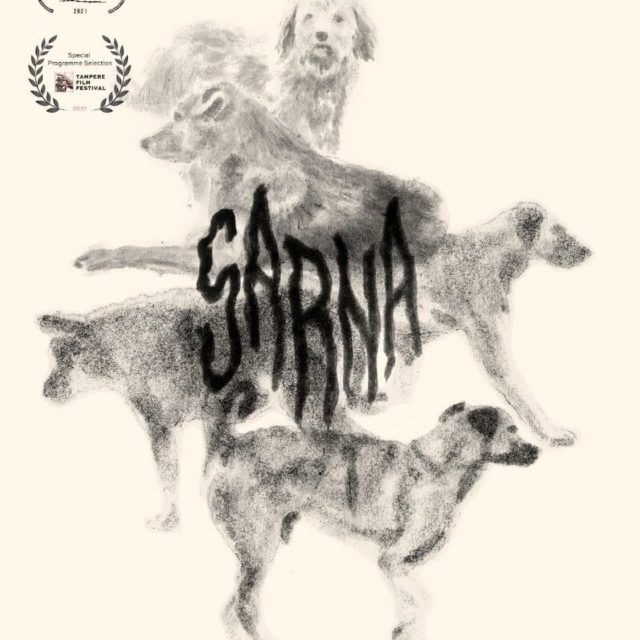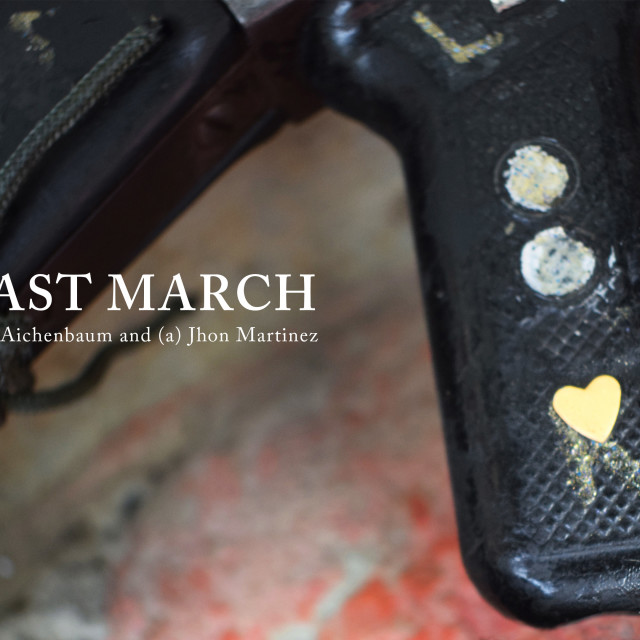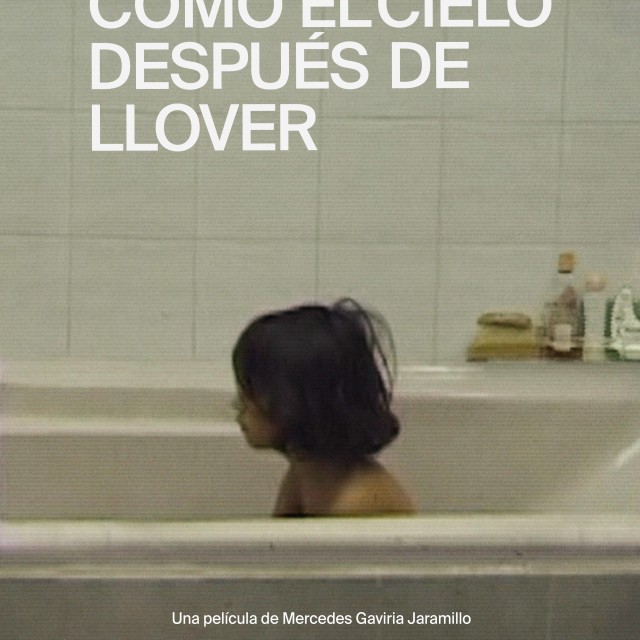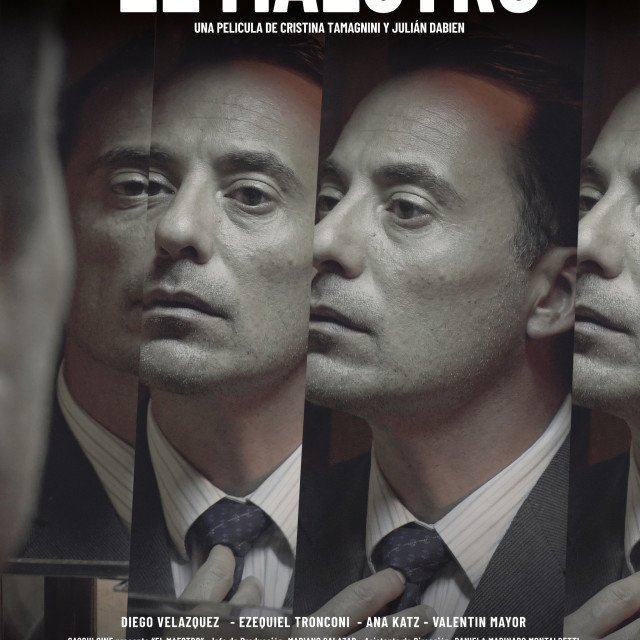BEYOND THE NIGHT
- Technical Info / Información Técnica:
(2021) – 00:25:58 – B&W – Stereo – 16 mm – 16/9 – Colombia – Drama, cinema verite, memories
- Logline:
A journey through the shadows that inhabit the memory of a space, like dry leaves dragged by the heavy flow of a river.
Un viaje por las sombras que habitan la memoria de un espacio, como hojas secas arrastradas por el pesado fluir de un río.
- Short Synopsis / Sinopsis Corta:
On the banks of the Magdalena River, an old man writes a poem to the memory of his dead mother, sitting in the courtyard of his childhood home. A journey through the shadows that inhabit the memory of a space, like dry leaves dragged by the heavy flow of a river.
Un hombre escribe un poema a la muerte de su madre en el patio de la casa de su infancia, a orillas del río Magdalena. Un viaje por las sombras que habitan la memoria de un espacio, como hojas secas arrastradas por el pesado fluir de un río.
- Director´s Biography / Biografía del Director:
MANUEL PONCE DE LEÓN RESTREPO
Manuel Ponce is the director and co-founder of the Colombian production company Los Niños Films. Some projects in which he has participated as director and screenwriter are: the short film “Dead River” (official selection of the 39th Havana International Film Festival), “Beyond the Night” his last short film in distribution; and his current feature film project “All my Journeys are Return Journeys” in pre-production.
Manuel Ponce es director y cofundador de la productora colombiana Los Niños Films. Algunos proyectos en los cuales ha participado como director y guionista son: el cortometraje “Río Muerto”, selección oficial del 39 Festival Internacional de Cine La Habana; “Más Allá de la noche” su último cortometraje en distribución, y su actual proyecto de largometraje “Todos Mis Viajes Son Viajes de Regreso” en estado de preproducción.
- Director’s Statement / Declaraciones del Director:
Raúl Gomez Jattin was a great Colombian poet and one of the best friends of my father, who is also a poet. Although he died when I was just a child, his name was always present as part of the family history. In 2016, when I returned from living in Berlin to my country, Colombia, I read the poem “Lola Jattin” by Raúl for the first time. A poem that he had written in memory of his mother, Lola Jattin, after her death. As soon as I read it, I felt like I had to make a movie that had something to do with it. I was deeply moved by the eternal dimension of the poem. The author’s ability to create different temporal layers, which all existed at the same time in the structure of the poem, almost as if the work itself were memory as if it were even my own past. After several years of reflecting on how, narratively and formally, I could portray this sentiment that had captivated me from the start, finally, the movie materialized into what it is today. Given that Beyond the Night is essentially a movie that journeys through the memory of a family home, and that this aspect was one of the things that captivated me the most about this poem, I felt that the most honest way to approach this story was with my own family. Trying to incorporate real characters from my family into the remembrance exercise that the movie proposes. Juan, my father, plays the film’s protagonist in his old age, at the same time as Gabriel, my brother, plays that same character in his youth, and Emiliano, my nephew, plays the protagonist in his childhood. The same occurs with the character of the mother of the poet: in her old age she is played by Catalina, my mother, and in her youth, she is played by Andrea, my sister. In simple terms, I wanted to, just as the poem evokes family images of the author’s past, construct the movie using household images of myself and my past. One of the fundamental elements of this film is the presence of the river. The river as a character, the river as a remembrance space, and as a vessel for traveling through time. In my last short film Río Muerto (2017) I also explore this idea of the river. It’s the story of a father and his son that, after their death, somehow they travel to their past through a dry riverbed, using this voyage as the central element of the story. I am deeply attracted to the way the stories and characters can interact with the landscape, with the natural elements, to the point of turning them into narrative vehicles that create a dislocated dimension of the temporal logic of the film itself. Thus the river and the patio of the house are the permanent characters in Beyond the Night. One of the most important explorations that I have made in my previous short films, which continues to be an element that causes me enormous curiosity and which is key to this film, is memory, the act of remembering, nostalgia. I feel that the moment of remembering (particularly remembering in the absence of what is being invoked through memory, that is, nostalgia) is essentially a creative act, an exercise of the imagination. I would even go so far as to say that the exercise of memory is a primitive art form of our race. I am particularly interested in the mental, psychic, or metaphysical space, whatever you want to call it, in which we enter during the act of remembering. To stop being completely present, to travel internally to another time, to another moment of ourselves. Cinema, as Tarkovsky once said, is essentially a nostalgic art; Cinema is always an evocation of the absent, it is always a ghost, it is always a memory, and I think that in that sense it is the ideal language to build the space of memory, that invisible landscape that we go through when we experience nostalgia when we evoke a memory that takes over our present to transport us to a place, to that space that ultimately is an imaginary place.
Raúl Gomez Jattin fue un poeta colombiano y uno de los mejores amigos de padre, quien también es poeta. A pesar de que murió cuando yo era apenas un niño, su nombre siempre estuvo presente como parte de la historia familiar. En el 2016, al regresar de vivir en Berlín a mi país Colombia, leí por primera vez el poema “Lola Jattin” de Raúl. Poema que había escrito a la memoria de su madre, Lola Jattin, después de su muerte. Tan pronto lo leí sentí que tenía que hacer una película que tuviera algo que ver con él. Me conmovió profundamente la dimensión eterna del poema. La capacidad del autor de crear diferentes capas temporales, que existían todas al mismo tiempo, en la estructura del poema, casi como si la obra misma fuera memoria. Tras varios años de reflexión alrededor de cómo, narrativa y formalmente podía conseguir plasmar este sentimiento que tanto me había cautivado en un comienzo, finalmente la película se materializó en lo que es hoy. Más allá de la noche, es una película que viaja por la memoria de una casa familiar, sentí que la manera más honesta de abordar la historia era con mi propia familia.. Buscar que dentro del ejercicio de memoria que se proponía la película, habitaran también personajes verdaderos de mi vida, de mi familia. Juan, mi padre, interpreta al protagonista de la película en su vejez, al mismo tiempo que Gabriel, mi hermano, interpreta al mismo personaje en su juventud y Emiliano, mi sobrino, interpreta al protagonista en su niñez. Lo mismo sucede con el personaje de la madre del poeta: en su vejez, la interpreta mi madre, y en su juventud, lo interpreta mi hermana. Quería que, así como el poema es una evocación de imágenes familiares del pasado del autor, la película se construyera de imágenes familiares mías y de mi propio pasado. Un elemento fundamental en esta película es la presencia del río como personaje, y el río como espacio de memoria, como vehículo para viajar en el tiempo. En mi cortometraje anterior “Río muerto” he explorado esta idea del río también realice un ejercicio con los personajes que de alguna manera viajan a sus propios pasados, tomando ese viaje como el elemento narrativo central. En Río Muerto, un padre y un hijo muertos vuelven a recorrer el espacio donde vivieron sus últimos momentos. Me atrae la manera como las historias y los personajes pueden interactuar con el paisaje, con los elementos naturales, al punto de convertirlos en vehículos narrativos que creen una dimensión dislocada de la lógica temporal de la película misma. Así el río y el espacio son los personajes permanentes de la película. Una de las exploraciones más importantes que he hecho en mis anteriores cortometrajes, y que sigue siendo un elemento que me produce enorme curiosidad y clave para esta película, es la memoria, el acto de recordar, la nostalgia. Me interesa particularmente el espacio mental, psíquico o metafísico, como se le quiera llamar, en el que nos adentramos durante el acto de recordar, de dejar de estar del todo presentes para viajar interiormente a otro tiempo, a otro momento de nosotros mismos. El cine, como lo dijo Tarkovsky, es en esencia un arte nostálgico; el cine siempre es fantasma, siempre es recuerdo, y creo que en ese sentido es el lenguaje idóneo para construir el espacio de la memoria, ese paisaje invisible que atravesamos cuando vivimos la nostalgia, cuando evocamos un recuerdo que se apodera de nuestro presente para transportarnos a un lugar, a ese espacio que, en últimas, es un lugar imaginario.
- Overview / Ficha técnica:
Script / Guión: Manuel Ponce de León
Director / Director: Manuel Ponce de León
Production / Producción: Carolina Zarate García
Cinematography / Dirección de Fotografía: Angello Faccini
Art Director / Directora de Arte: Diego Ricardo
Sound Design / Diseño de Sonido: Antonio Ponce de León
Editing / Montaje: Manuel Ponce de León
Cast / Intérpretes: Catalina Restrepo Gabriel Ponce de Léon Juan Manuel Ponce de León Andrea Restrepo Jose Oliverio Ospina
- Festivals and Awards / Festivales y Premioss:
– 32 FID Marseille (Special Mention); 07/2021; France
– 18 Curtocircuito, International Short Film Festival; 10/2021; Spain
– 23 MIDBO, Bogota Documental Festival; 10/2021; Colombia
– 28 L’Alternativa, Barcelona Independent Film Festival; 11/2021; Spain
– 11 Márgenes. Independent Film Festival; 12/2021; Spain
– 12 FICUNAM; 03/2022; Mexico
- Links:
Trailer: https://vimeo.com/512691959
- Contact / Contacto:
Gisela Chicolino
FilmsToFestivals Distribution Agency

